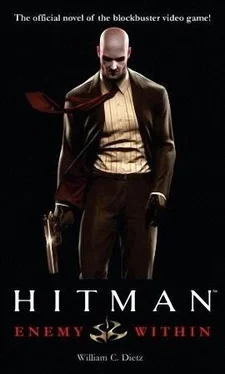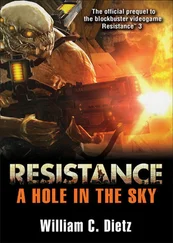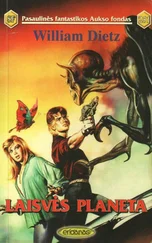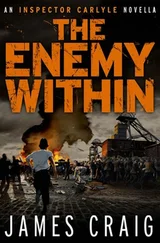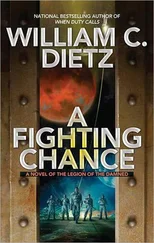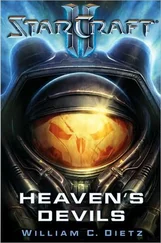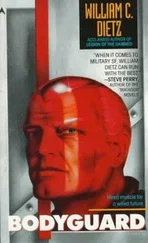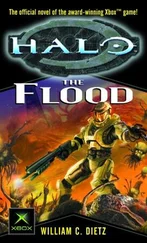The assassin, who hadn’t been aware that he was holding his breath, let it out slowly.
“Damn, why so many turns?”
“It may not look like it,” the Libyan replied, “but we’re on a road. When Gaddafi ordered his forces to build the airstrip, they laid mines in precise patterns that allowed anyone who was equipped with a watch and compass to access the base via four two-lane roads. One for each point of the compass. The turns were supposed to keep the bad guys out.”
“Did it work?”
“Hell, no. The base was under the command of one Colonel Khalifa Assa Uadi. In spite of the fact that he had 4,000 men, 20 aircraft, and some 200 tanks, the idiot allowed a ragtag force of Chadians to find their way through the minefield, chop holes in the security fence, and infiltrate the base. It fell within a matter of hours.”
“You seem to know a lot about the battle.”
Gazeau grinned. His teeth gleamed in the light provided by the instrument panel.
“During the years after my father left the French Foreign Legion, he accepted freelance contracts from time to time. He was with the Chadian forces when they entered the base.”
“So he mapped the roads?”
The Libyan shook his head.
“There was no need to. One of Uadi’s officers sold my father a map for the equivalent of twenty-five dollars U.S. Later, after Libyan forces left, the airstrip was abandoned. Papa always kept a stash of supplies there, and so do I. About two years ago I took his directions and converted them into latitude and longitude, in order to take advantage of the GPS system.”
Agent 47 made use of his right hand to trigger the handheld Motorola.
“Stand by. We have another turn coming up.”
Numo, whose job it was to look for any mines that might have migrated along with the constantly shifting sands, clicked the transmit button by way of acknowledgment.
The desert was surprisingly cold at night. Still, he seemed oblivious to any physical discomfort, and most likely he was ignoring it to focus on the task at hand.
This was the Sahara, after all, where death lay only meters away.
By the time a long, thin crack appeared along the eastern horizon, and pink light washed the sky, Agent 47 was ready to make his first kill.
The Mog had been left at the bottom of a dry wadi and covered with the camo netting that Gazeau always carried. Now, having made it all the way to the air base’s perimeter without blowing themselves up, all 47 and his companions had to do was neutralize a combined force of something like eighteen bodyguards and police officers in order to have a nice, productive chat with Al-Fulani. It was no small task, but one the operative thought the three of them could accomplish, so long as they played it smart.
In order to gain every possible advantage, Agent 47 had Gazeau draw three identical maps of the base, and divide each into sectors. Then, having checked to make sure their radios were operational, the men low-crawled into position roughly three hundred feet out from the perimeter of the base. The assassin estimated that the old radio mast was approximately one hundred feet tall. That made it the perfect watchtower-a place from which a sharp-eyed lookout could monitor activity for miles around. Had he been the one playing defense, 47 would have stationed one of his very best people up there.
But would Marla do likewise? It was an important question, because if she had, then it would be necessary to kill the lookout in order to maintain the element of surprise. But it was still too dark to be sure.
He found it frustrating, lying there as the sun continued to rise, knowing full well that valuable time was slipping away. But Agent 47 forced himself to remain where he was and gradually, bit by bit, the early morning light began to illuminate the tower. There, about halfway to the top, a platform could be seen. The image wobbled as the assassin brought the Walther WA 2000 to bear. It was difficult to hold the weapon steady because of the steep angle, but there was no mistaking the lookout who was crouched on the tiny triangle of metal, or the sticklike rifle that was slung across his back. A safety rope secured the sentry to the tower and he was looking toward the north. The assassin turned to Gazeau.
“There’s a lookout all right. But I need something to rest my rifle on. Get up on your hands and knees.”
The Libyan made a face, but crawled into position, and felt the gun barrel come to rest on his back. It was a rather undignified pose, and something the sentry was sure to notice if he turned toward the south. And Gazeau knew that he, rather than “Taylor,” would be targeted first.
In the meantime, Agent 47 found that even with the improvised gun rest, the elevation was such that the shot would be difficult to make. Yet there wasn’t any choice. So the assassin worked a cartridge into the chamber, slid the crosshairs over the lookout’s torso, and made a slight adjustment to allow for the westerly breeze. Then, having taken a deep breath and forced it out again, he took all of the slack out of the trigger.
The Walther nudged his shoulder, there was a soft phut as the bullet left the barrel, and the man on the tower seemed to sag.
The lookout couldn’t fall-given the safety rope-but his binoculars did. Agent 47 held his breath as the glasses plummeted toward the ground, disappeared behind one of the intervening buildings, and presumably smashed themselves into a hundred pieces on the concrete below. Would someone hear?
It seemed all too likely, but twenty seconds, then a minute, then five minutes passed without producing any sign of an alarm. The assassin allowed himself to breathe normally.
Gazeau was back at his side by then and ready for the next step.
“Okay, Pierre, work your way over to the tower. Climb it if you can, eyeball the base, and tell me where they are.” The operative turned to his left. “Numo, circle around to the west. Find a good position and get ready to fire on targets of opportunity.”
Both men nodded and scuttled away as 47 elbowed his way toward the sand-drifted remains of a much-abused security fence. There were plenty of holes, so he chose the closest.
Once inside he found himself at the edge of what had been a military parade ground. The concrete was cracked in places and partially covered with windblown sand, but still recognizable as what it had been. The problem was that all of the buildings were located on the far side of the hardscape. Agent 47 didn’t want to cross that much open ground, but there wasn’t any choice unless he wanted to take a long detour, the length of which would pose its own risks.
So the operative got up and began to run.
The Mossberg pump gun bounced against his back, and the weight of the spare ammo slowed the assassin down as he ran toward the three aluminum flagpoles that marked the front of what had once been the facility’s administration building. The prefab box was made of corrugated metal, and was riddled with hundreds of bullet holes. There was no way to know whether the shots had been fired by the Chadians as the base was overrun, or by vandals later on.
Three steps led 47 up to shattered double doors that sagged inward. The assassin slipped between them and instantly found himself in a murky reception area. A quick reconnaissance revealed half a dozen offices that lay beyond, one of which was larger than all the rest, and probably had belonged to the commanding officer. Agent 47 could imagine the feckless Colonel Uadi sitting behind his desk, trying to understand what was happening as his command disintegrated around him.
The building had been looted more than once, which meant that anything of value had been taken, but a few symbols of the past remained. Among the items that caught 47’s eye was a cloth jacket, still hanging from its hook; a photo of a pretty woman, on the filthy floor; and a plaque celebrating some sort of achievement, still bolted to the wall. None of which mattered to the operative as long as he had the place to himself.
Читать дальше
